Premium Only Content

Watergate Hearings Day 37: Richard Kleindienst and Henry E. Petersen (1973-08-07)
The dark side of history: https://thememoryhole.substack.com/
Richard Gordon Kleindienst (August 5, 1923 – February 3, 2000) was an American lawyer, politician, and U.S. Attorney General during the early stages of Watergate political scandal.
Early life and career
Kleindienst was born August 5, 1923, in Winslow, Arizona, the son of Gladys (Love) and Alfred R. Kleindienst.[1] He attended the University of Arizona before serving in the United States Army Air Forces from 1943 to 1946. Following his military service, he attended Harvard College and Harvard Law School, graduating from the latter in 1950.[2]
From 1953 to 1954, he served in the Arizona House of Representatives; he followed that with some 15 years of private legal practice.[3] He concurrently was Arizona Republican Party chairman from 1956 to 1960 and 1961 to 1963, and in the 1964 Arizona gubernatorial election, the Republican candidate for Governor of Arizona, losing the general election to Sam Goddard, 53–47%.
Role in Goldwater Campaign
[icon]
This section needs expansion. You can help by adding to it. (January 2022)
On January 3, 1964, Barry Goldwater asked his friend Kleindienst to serve as Director of Operations in his presidential campaign. Goldwater stipulated that he would only respond to the "draft Goldwater" movement if the campaign were led by three Republicans close to him: Kleindienst, Denison Kitchel as Campaign Manager, and Dean Burch as Assistant Campaign Manager.[4]
Kleindienst had never worked on a national campaign. Political experts told Goldwater that F. Clifton White, an experienced GOP operative, would be a better choice. Goldwater rejected this change, but did agree to Kleindienst and White sharing the role.
Nixon administration
Kleindienst in a group photo of Nixon's cabinet on June 16, 1972, fourth from the right in the back row.
After Richard Nixon won the 1968 presidential election, John N. Mitchell agreed to serve as United States Attorney General on the condition that Kleindienst serve as Deputy Attorney General.[5] Kleindienst suspended his private practice in 1969 to accept the post of Deputy Attorney General offered him by President Nixon. This gave him responsibilities relating to the government's suit against the International Telephone & Telegraph Corporation. Nixon and his aide John Ehrlichman told him to drop the case, which created an impression that they were violating their ethical obligations in favor of ITT, and that, as an attorney himself, Kleindienst was now obligated to report these ethical lapses to the state bars in the jurisdictions involved. But in his official role as Deputy Attorney General, he also repeatedly told Congress that no one had interfered with his department's handling of the case, failing to mention either Nixon or Ehrlichman.[6][7]
On February 15, 1972, Attorney General Mitchell resigned effective March 1 in order to work on the Nixon re-election campaign, with President Nixon nominating Kleindienst to serve as his successor.[8] After having served as Acting Attorney General for a little under three and a half months, his appointment was approved by the Senate on June 12 after an attempt to block the nomination by Ted Kennedy on the grounds of his involvement with ITT failed.[9]
Unknown to Kleindienst, leaders of the Committee to Re-Elect the President (CRP) had tasked Gordon Liddy with arranging various covert operations, one of which was to be a burglary of the Democratic National Committee headquarters at the Watergate complex in Washington, DC. Before dawn on Saturday, June 17, 1973, five days after Kleindienst was sworn in,[10] James McCord and four other burglars operating on Liddy's instructions were arrested at the Watergate complex. Later in the morning Kleindienst was officially notified of the arrests. Liddy, after a phone consultation about the arrests with CRP Deputy Director Jeb Magruder (who had managed CRP up until March of that year, and had the most direct organizational authority over Liddy's activities), personally approached Kleindienst the same day at the Burning Tree Club golf club in Bethesda, Maryland. Liddy told him that the break-in had originated within CRP, and that Kleindienst should arrange the release of the burglars, to reduce the risk of exposure of CRP's involvement. But Kleindienst refused and ordered that the Watergate burglary investigation proceed like any other case.
Kleindienst ultimately resigned in the midst of the Watergate scandal nearly a year later, on April 30, 1973. This was the same day that John Dean was fired and H. R. Haldeman and John Ehrlichman resigned.[11] In 1974, he pleaded guilty to contempt of Congress for his failing to testify fully to the Senate in a pre-Watergate investigation, involving alleged favoritism shown to ITT during his testimony as part of his Senate confirmation hearings.[12][13] Kleindienst was one of very few people in modern U.S. history to be convicted of contempt of Congress; G. Gordon Liddy, another figure in the Watergate scandal, also was convicted in the 1970s.[13]
In April 1982, the Arizona Supreme Court unanimously suspended Kleindienst from the practice of law for 1 year due to his unethical conduct, accepting a disciplinary recommendation from the state bar association. The suspension was due to statements he made to a bar investigator probing Kleindienst's representation in a 1976 insurance company fraud case.[14] In October 1982, the U.S. Supreme Court, on a unanimous vote, disbarred Kleindienst, blocking him from practicing before the highest court.[15]
Later life
In 1981, Kleindienst was charged with perjury regarding how much he knew about a white-collar criminal he represented; he was subsequently acquitted.[16]
He died at the age of 76, of lung cancer, on February 3, 2000.[16]
Bibliography
Kleindienst, Richard (1985). Justice: The Memoirs of Attorney General Richard Kleindienst. Ottawa, Illinois: Jameson Books. ISBN 0-915463-15-6.
For Kleindienst's role in Watergate, see Leon Jaworski, The Right and the Power, and Bob Woodward and Carl Bernstein, All the President's Men[ISBN missing].
References
Keene, Ann T. (January 2001). "Kleindienst, Richard G." Oxford University Press – via American Council of Learned Societies.
"Richard G. Kleindienst (1972–1973)". Miller Center. Retrieved 2017-08-29.
"Attorney General: Richard Gordon Kleindienst | AG | Department of Justice". www.justice.gov. 23 October 2014. Retrieved 2017-08-29.
Perlstein, Rick (2001). Before the storm : Barry Goldwater and the unmaking of the American consensus (1st ed.). New York: Hill and Wang. ISBN 9780809028580.
Graff, Garrett M. (2022). Watergate: A New History (1 ed.). New York: Avid Reader Press. p. 42. ISBN 978-1-9821-3916-2. OCLC 1260107112.
"Context of '1969: ITT Negotiates with Nixon Aides to Avoid Antitrust Lawsuit'". www.historycommons.org. Retrieved 2017-08-29.
[1] | May 17, 1974 | Kleindienst Admits Misdemeanor Guilt | Anthony Ripley | [2]
"Richard Gordon Kleindienst – Arizona Obituary Directory". obits.arizonagravestones.org. Retrieved 2017-08-29.
New York Times (9 June 1972). "Senate Backs Kleindienst In Attorney General Post". The New York Times. Retrieved 23 July 2018.
Richard G. Kleindienst, Figure in Watergate Era, Dies at 76, New York Times, by David Stout, Feb. 4, 2000
Laurence Stern and Haynes Johnson, Washington Post Staff Writers (May 1, 1973). "3 Top Nixon Aides, Kleindienst Out; President Accepts Full Responsibility; Richardson Will Conduct New Probe". washingtonpost.com.
Jackson, Robert L. (4 February 2000). "Richard Kleindienst, Attorney General in Nixon Cabinet, Dies". Los Angeles Times.
Kyle Cheney & Josh Gerstein, House hopes to defy history in criminal contempt case against Bannon, Politico (October 19, 2021).
Around the Nation; Kleindienst Law Practice Suspended for a Year, United Press International (April 24, 1982).
Tigh court disbars Kleindienst, United Press International (October 4, 1982).
"Kleindienst, Richard G. (05 August 1923–03 February 2000)". American National Biography. January 2001.
External links
Appearances on C-SPAN
Party political offices
Preceded by
Paul Fannin
Republican nominee for Governor of Arizona
1964 Succeeded by
Jack Williams
Legal offices
Preceded by
Warren Christopher
United States Deputy Attorney General
1969–1972 Succeeded by
Ralph Erickson
Preceded by
John Mitchell
United States Attorney General
1972–1973 Succeeded by
Elliot Richardson
vte
United States Attorneys General
Randolph Bradford Lee Lincoln Breckinridge Rodney Pinkney Rush Wirt Berrien Taney Butler Grundy Gilpin Crittenden Legaré Nelson Mason Clifford Toucey Johnson Crittenden Cushing Black Stanton Bates Speed Stanbery Evarts Hoar Akerman Williams Pierrepont Taft Devens MacVeagh Brewster A. Garland Miller Olney Harmon McKenna Griggs Knox Moody Bonaparte Wickersham McReynolds Gregory Palmer Daugherty Stone Sargent W. D. Mitchell Cummings Murphy Jackson Biddle T. C. Clark McGrath McGranery Brownell Rogers Kennedy Katzenbach R. Clark J. N. Mitchell Kleindienst Richardson Saxbe Levi Bell Civiletti Smith Meese Thornburgh Barr Reno Ashcroft Gonzales Mukasey Holder Lynch Sessions Barr M. Garland
Seal of the United States Department of Justice
vte
Cabinet of President Richard Nixon (1969–1974)
Cabinet
Vice President
Spiro Agnew (1969–1973) None (1973) Gerald Ford (1973–1974)
Secretary of State
William P. Rogers (1969–1973) Henry Kissinger (1973–1974)
Secretary of the Treasury
David M. Kennedy (1969–1971) John Connally (1971–1972) George Shultz (1972–1974) William E. Simon (1974)
Secretary of Defense
Melvin Laird (1969–1973) Elliot Richardson (1973) James R. Schlesinger (1973–1974)
Attorney General
John N. Mitchell (1969–1972) Richard Kleindienst (1972–1973) Elliot Richardson (1973) William B. Saxbe (1974)
Postmaster General
Winton M. Blount (1969–1971)
Secretary of the Interior
Wally Hickel (1969–1970) Rogers Morton (1971–1974)
Secretary of Agriculture
Clifford M. Hardin (1969–1971) Earl Butz (1971–1974)
Secretary of Commerce
Maurice Stans (1969–1972) Peter G. Peterson (1972–1973) Frederick B. Dent (1973–1974)
Secretary of Labor
George Shultz (1969–1970) James Day Hodgson (1970–1973) Peter J. Brennan (1973–1974)
Secretary of Health, Education, and Welfare
Robert Finch (1969–1970) Elliot Richardson (1970–1973) Caspar Weinberger (1973–1974)
Secretary of Housing and Urban Development
George W. Romney (1969–1973) James Thomas Lynn (1973–1974)
Secretary of Transportation
John A. Volpe (1969–1973) Claude Brinegar (1973–1974)
Cabinet-level
Director of the Bureau of the Budget
Robert P. Mayo (1969–1970)
Director of the Office of Management and Budget
George Shultz (1970–1972) Caspar Weinberger (1972–1973) Roy Ash (1973–1974)
Ambassador to the United Nations
Charles Yost (1969–1971) George H. W. Bush (1971–1973) John A. Scali (1973–1974)
Counselor to the President
Arthur F. Burns (1969) Daniel Patrick Moynihan (1969–1970) Bryce Harlow (1969–1970) Robert Finch (1970–1972) Donald Rumsfeld (1970–1971) Anne L. Armstrong (1973–1974) Dean Burch (1974) Kenneth Rush (1974)
Authority control databases Edit this at Wikidata
International
FAST ISNI VIAF
National
Germany United States
Other
NARA SNAC
Categories:
1923 births2000 deaths20th-century American politiciansAmerican EpiscopaliansAmerican perjurersArizona lawyersArizona politicians convicted of crimesDeaths from lung cancer in ArizonaHarvard College alumniHarvard Law School alumniRepublican Party members of the Arizona House of RepresentativesMilitary personnel from ArizonaNixon administration cabinet membersPeople from Winslow, ArizonaPeople convicted of contempt of CongressPoliticians from Prescott, ArizonaUnited States Army Air Forces personnel of World War IIUnited States Attorneys GeneralUnited States Deputy Attorneys GeneralWatergate scandal investigators
Henry E. Petersen (January 1, 1921 – May 29, 1991)[1] was an attorney and United States federal government official. He served as Assistant U.S. Attorney General during the Richard Nixon and Gerald Ford administrations. He also engaged in ethically questionable communications with Nixon and his staff, providing inside information about the Watergate investigation prior to the appointment of the Special Prosecutor.[2]
Personal
Petersen was born in Philadelphia, Pennsylvania in 1921 and grew up in the Washington, D.C. area. Petersen served in the United States Marine Corps in the South Pacific during World War II.[1] After returning, Petersen studied at Georgetown University and received his law degree from the Catholic University of America.[1]
Peterson"s wife was Jean and kids were Julie, Jaqueline, and others
Petersen died of emphysema in Sunderland, Maryland in 1991 at age 70.[3]
Involvement in the Watergate scandal
In his capacity as the Assistant Attorney General for the Criminal Division of the United States Department of Justice, Petersen oversaw the conduct of the Watergate investigation by federal prosecutors in the U.S Attorneys Office in Washington D.C. When Wright Patman announced that the House Banking Committee would be investigating Watergate, White House Counsel John Dean persuaded Petersen to ask the members of the House Banking Committee not to issue subpoenas for individuals involved in the Watergate scandal (including Dean himself) because it might jeopardise potential criminal trials. On October 2, 1972, at the behest of Dean, Petersen sent a letter to the members of the Committee asking that they not issue subpoenas, and the following day the Committee voted not to hold hearings on Watergate.[4]
Particularly critical of Petersen in House Banking Committee meetings was Rep. Henry S. Reuss (D-Wis.).[5] Early in 1973, tipped off by a Wall Street Journal reporter that Petersen was rumored to be meeting daily with the president, Reuss's legislative assistant James H. Rathlesberger obtained Petersen's confirmation[clarification needed] in a telephone interview that same day. Petersen claimed it was not inappropriate because he was only sharing one category of evidence he deemed non-problematic. Former Attorney General Ramsey Clark that afternoon informed Rathlesberger in another telephone interview "that is absolutely wrong. I would never do that." But Reuss, a Harvard-trained lawyer and former prosecutor, told Rathlesberger by phone late that afternoon from Wisconsin: "I disagree with Ramsey" and that he saw nothing wrong and chose not to make a press statement.[6][better source needed]
Sometime in late October 1972, Petersen informed Dean that Mark Felt was leaking information to the press. Felt would later come to be described in Bob Woodward and Carl Bernstein's bestselling book All the President's Men as "Deep Throat," whose identity would remain a mystery until 2005. Petersen did not divulge who told him this, however he explained that it was an attorney who was employed by one of the newspaper publications that Felt was leaking to. Dean reported this information back to the White House. When Chief of Staff H.R Haldeman reported the information to President Nixon, Haldeman advised Nixon not to fire Felt as "He knows everything that's to be known in the FBI."[7] Author Max Holland speculates that it was Roswell Gilpatric who told Petersen that it was Felt who was leaking to Time magazine.[8]
In April 1973, John Dean decided to cooperate with federal prosecutors in the Watergate investigation. Dean came to an agreement with lead prosecutor Earl Silbert that he would not report the information Dean gave back to Petersen (Silbert's superior) as he knew Petersen would inform the White House. When Dean informed Silbert that Nixon's two closest advisors, H.R Haldeman and John Ehrlichman were involved in an obstruction of justice, Silbert felt he had to inform Petersen of the situation. On April 15, 1973, Attorney General Richard Kleindienst and Petersen informed Nixon that Dean was cooperating and that the Justice Department was building a criminal case against Haldeman and Ehrlichman. Haldeman and Ehrlichman resigned fifteen days later while Dean was fired.[9]
On April 17, 1973, Petersen told President Nixon that the Justice Department was investigating the break-in at Daniel Ellsberg's psychiatrist office by the White House Plumbers. Nixon ordered Petersen not to investigate the issue because "that was a national security matter." Petersen relayed this order back to Earl Silbert. Several days later however, Petersen and Kleindienst persuaded Nixon that the Justice Department needed to disclose the matter to the court in Daniel Ellsberg's criminal case.[10]
Throughout April 1973, Nixon would use Petersen to extract important grand jury information about the Watergate case before divulging that information to subjects of the investigation. For example, on April 16, 1973, Petersen informed Nixon that Fred LaRue, a figure in the Watergate cover-up was cooperating with the grand jury. Nixon subsequently instructed Haldeman to inform Herb Kalmbach, another figure in the cover-up that LaRue was "talking freely."[11] The conversations with Petersen would later be cited in the Articles of Impeachment against Richard Nixon, accusing the President of "disseminating information received from officers of the Department of Justice of the United States to subjects of investigations conducted by lawfully authorized investigative officers and employees of the United States, for the purpose of aiding and assisting such subjects in their attempts to avoid criminal liability."[12]
Due to his role in the Watergate scandal, Petersen testified before the Senate Watergate Committee on August 7, 1973.[13]
References
Fowler, Glenn (June 1991). "Henry E. Petersen Is Dead at 70; Investigated Watergate Break-In". The New York Times. Retrieved 28 January 2016.
"What the Watergate 'Road Map' Reveals About Improper Contact Between the White House and the Justice Department". Lawfare. 19 November 2018.
"Henry E. Petersen, 70, a career Justice Department ..." tribunedigital-baltimoresun. June 1991.
93rd Congress of the United States (1974). Final Report of the Senate Select Committee on Presidential Campaign Activities. Washington D.C: U.S. Government Printing Office. p. 74.
Reuss, Henry S. (1999). When Government Was Good. The University of Wisconsin Press. pp. 105–106. ISBN 0-299-16190-0.
James H. Rathlesberger, Legislative Assistant to Rep. Henry S. Reuss, 1973-75.
Dean, John (2014). The Nixon Defense. New York: Viking. pp. 172–173.
Dean. The Nixon Defense. p. 679.
SSC Final Report. p. 91.
93rd Congress (1974). Hearings of the Senate Select Committee on Presidential Campaign Activities. Washington D.C: U.S. Government Printing Office. p. 3631.
93rd Congress of the United States (1974). House Judiciary Committee Hearings: Statement of Information. Washington D.C: US Government Printing Office. pp. 78–79.
"Watergate Articles Of Impeachment". watergate.info. Retrieved 2020-10-30.
93rd Congress. SSC Hearings. p. 3611.
External links
"Gerald R. Ford: Letter Accepting the Resignation of Henry E. Petersen as Assistant Attorney General, Criminal Division". www.presidency.ucsb.edu. Retrieved 2016-05-17.
Higgins, George V. (November 1, 1974). "The Friends of Richard Nixon". The Atlantic.
Henry Petersen Watergate Testimony
Legal offices
Preceded by
Will Wilson
United States Assistant Attorney General for the Criminal Division
1972–1974 Succeeded by
Dick Thornburgh
Authority control databases Edit this at Wikidata
International
VIAF
Artists
ULAN
Categories:
United States Assistant Attorneys General1921 births1991 deathsLawyers from PhiladelphiaLawyers from Washington, D.C.Georgetown University alumniCatholic University of America alumni20th-century American lawyersNixon administration personnel involved in the Watergate scandalUnited States Assistant Attorneys General for the Criminal DivisionUnited States Marine Corps personnel of World War II
-
 31:00
31:00
The Memory Hole
9 months agoThe Perils of a Life of Dirty Tricks in the CIA (1978)
1.91K -
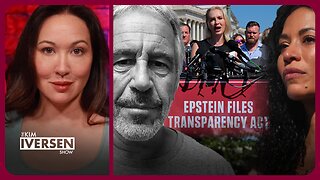
Kim Iversen
2 hours agoEPSTEIN VICTIM: We Have The Names. We'll Make The List.
19.5K28 -
 LIVE
LIVE
The Jimmy Dore Show
46 minutes agoTrump’s HUGE About-Face on the COVID Vaxx! Epstein Victims Demand Justice In DC! w/ Mary Holland
4,064 watching -

TheCrucible
2 hours agoThe Extravaganza! EP: 31 (9/03/25
67K1 -
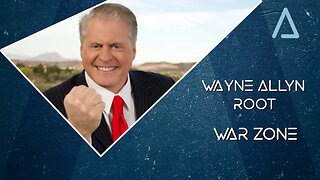 LIVE
LIVE
Wayne Allyn Root | WAR Zone
5 hours agoWAR Zone LIVE | 3 SEPTEMBER 2025
87 watching -
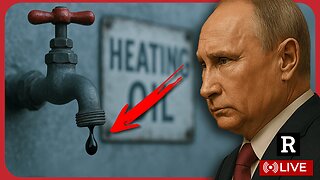 1:28:57
1:28:57
Redacted News
2 hours agoBREAKING! Putin's DEVASTATING news for Europe | Secret UFO Space Base in Huntsville | Redacted Live
85.8K83 -
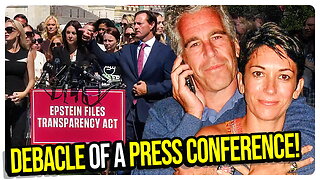 1:17:49
1:17:49
vivafrei
5 hours agoEpstein Press Conference DEBACLE! Missing Minute FOUND? Canada Continues to Fall! & MORE!
74.7K58 -
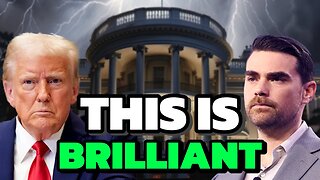 29:30
29:30
Stephen Gardner
2 hours ago🟢YES! Trump’s Doing It! Ben Shapiro UNLEASHES on Democrat STUPIDITY!
34.4K16 -
 LIVE
LIVE
Dr Disrespect
7 hours ago🔴LIVE - DR DISRESPECT - METAL EDEN - NEW 2025 SCI-FI FPS LAUNCH STREAM
982 watching -
 LIVE
LIVE
StoneMountain64
5 hours agoBattlefield's Easter Egg Phantom Project is STILL ALIVE
92 watching